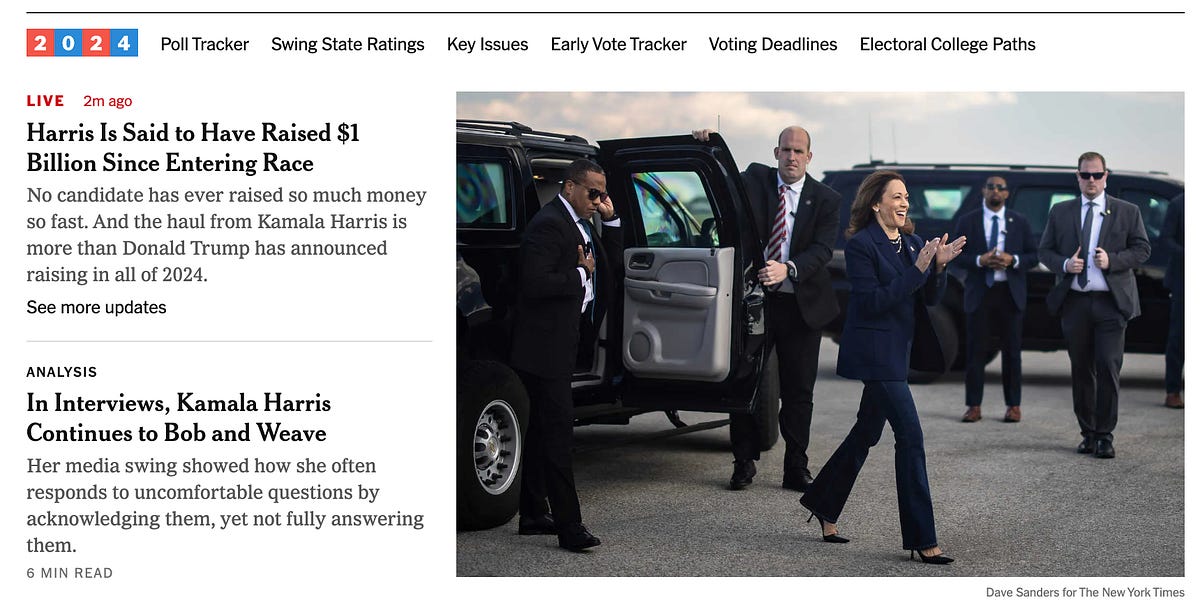Which country has the best education system in the world? Not everybody is fortunate enough to be born in a country with the best education system. Some countries may not allow an individual to realize their full potential in their field of study. Some students have excelled in their local education system and aspire to achieve more. Studying abroad can help students accomplish all of these goals. Living independently away from family makes students more responsible and financially savvy. Living in a different culture can also provide students with a fresh outlook on life, which can help them grow as individuals.
As Nelson Mandela once said, “Education is the most powerful weapon which you can use to change the world.” But which country has the best education system in the world? The rankings are based on three equally weighted factors: a developed public education system, high-quality education, and whether respondents would consider attending university in that country. A combination of federally run and decentralized education systems rank highest.
The ranking of countries with the best education system is an annual perception-based global survey that takes into account the opinions of university students, academic professionals, teachers, professors, business executives, and education policy experts. The survey was conducted from January to March 2024 and received over 196,300 replies.
According to the 2024 rankings, the United Kingdom has the most well-developed education system in the world. The United States comes in second place, followed by Australia, the Netherlands, and Sweden. France is ranked sixth, Denmark seventh, Canada eighth, Germany ninth, and Switzerland tenth. Japan, Israel, Finland, Taiwan, and Singapore hold the 11th to 15th positions respectively.
Countries with the best performing education systems, 2024
| Rank | Country | Quality Index | Opportunity Index |
|---|---|---|---|
| 1 | United Kingdom | 78.2 | 69.79 |
| 2 | United States | 72 | 68.74 |
| 3 | Australia | 70.5 | 67.52 |
| 4 | Netherlands | 70.3 | 67.21 |
| 5 | Sweden | 70.1 | 66.96 |
| 6 | France | 69.9 | 66.3 |
| 7 | Denmark | 69.8 | 62.54 |
| 8 | Canada | 69.8 | 61.01 |
| 9 | Germany | 69.5 | 60.64 |
| 10 | Switzerland | 68.3 | 60.12 |
| 11 | Japan | 68.2 | 59.46 |
| 12 | Israel | 66.9 | 57 |
| 13 | Finland | 66.8 | 56.68 |
| 14 | Taiwan | 66.6 | 55.27 |
| 15 | Singapore | 66 | 55.22 |
| 16 | Slovenia | 65.8 | 54.38 |
| 17 | South Korea | 65.2 | 53.5 |
| 18 | Norway | 65 | 53.41 |
| 19 | Belgium | 64.2 | 53.02 |
| 20 | United Arab Emirates | 64 | 52.94 |
| 21 | Luxembourg | 63.9 | 52.6 |
| 22 | New Zealand | 63.4 | 51.77 |
| 23 | Ireland | 62.6 | 50.91 |
| 24 | Hungary | 62.4 | 50.62 |
| 25 | Iceland | 62.2 | 50.49 |
| 26 | Greece | 62.1 | 50.06 |
| 27 | Czech Republic | 62.1 | 50.01 |
| 28 | Liechtenstein | 61.3 | 49.84 |
| 29 | Cyprus | 60.7 | 49.66 |
| 30 | Poland | 60.4 | 48.68 |
| 31 | Estonia | 60 | 48.48 |
| 32 | Latvia | 60 | 48.33 |
| 33 | India | 59.1 | 48.21 |
| 34 | Portugal | 59.1 | 47.77 |
| 35 | Croatia | 59 | 47.6 |
| 36 | Russia | 58.7 | 47.08 |
| 37 | Lithuania | 58.4 | 46.88 |
| 38 | Saudi Arabia | 58.4 | 46.45 |
| 39 | Georgia | 57.9 | 46.41 |
| 40 | Austria | 57.3 | 46.25 |
| 41 | Slovakia | 57 | 46.25 |
| 42 | Hong Kong | 56.9 | 46.22 |
| 43 | Italy | 56.9 | 46.13 |
| 44 | Kuwait | 56.7 | 45.96 |
| 45 | Spain | 56.1 | 45.71 |
| 46 | Brazil | 56 | 45.52 |
| 47 | Romania | 55.8 | 45.19 |
| 48 | Uruguay | 55.5 | 45.16 |
| 49 | Bulgaria | 55.4 | 45.1 |
| 50 | Serbia | 55.2 | 45.09 |
| 51 | Bahrain | 54.1 | 44.73 |
| 52 | Thailand | 53.8 | 44.62 |
| 53 | Turkey | 53.4 | 44.6 |
| 54 | Chile | 52.7 | 44.48 |
| 55 | Kyrgyzstan | 52.6 | 44.36 |
| 56 | Mexico | 52.1 | 44.34 |
| 57 | Seychelles | 52 | 44.06 |
| 58 | Trinidad And Tobago | 51.6 | 43.94 |
| 59 | Tunisia | 51.4 | 43.93 |
| 60 | Malta | 51.3 | 43.71 |
| 61 | Argentina | 51.2 | 43.71 |
| 62 | Kazakhstan | 51 | 43.65 |
| 63 | Malaysia | 51 | 43.58 |
| 64 | Oman | 50.6 | 43.56 |
| 65 | China | 50.3 | 43.51 |
| 66 | Puerto Rico | 49.1 | 43.43 |
| 67 | Qatar | 47.3 | 43.17 |
| 68 | Albania | 47.3 | 43.02 |
| 69 | Azerbaijan | 47 | 42.99 |
| 70 | Indonesia | 46.4 | 42.97 |
| 71 | South Africa | 45.2 | 42.97 |
| 72 | Zambia | 44.7 | 42.76 |
| 73 | Montenegro | 43.4 | 42.66 |
| 74 | Bahamas | 42 | 42.39 |
| 75 | Mauritius | 41.9 | 42.36 |
| 76 | Brunei | 39.4 | 42.15 |
| 77 | Sri Lanka | 39.3 | 41.96 |
| 78 | Dominican Republic | 39.2 | 41.85 |
| 79 | Barbados | 36.5 | 41.58 |
| 80 | Grenada | 36 | 41.32 |
| 81 | Costa Rica | 35.8 | 41.15 |
| 82 | Lebanon | 35.3 | 40.95 |
| 83 | Pakistan, Islamic Republic | 34.7 | 40.82 |
| 84 | Colombia | 33.8 | 40.77 |
| 85 | Gabon | 32.8 | 40.64 |
| 86 | Turkmenistan | 31.9 | 40.63 |
| 87 | Maldives | 28.5 | 40.62 |
| 88 | Jordan | 28.2 | 40.44 |
| 89 | Libya | 27.9 | 40.3 |
| 90 | Central African Republic | 27.6 | 40.28 |
| 91 | Liberia | 27.3 | 40.28 |
| 92 | Myanmar (Burma) | 27.2 | 40.22 |
| 93 | Botswana | 27 | 40.16 |
Detailed findings & methodology:
In order to determine the rankings, researchers at the CEOWORLD magazine compiled analyzed and compared 93 countries across two key categories: 1) Quality and 2) Opportunity. To evaluate those dimensions, researchers looked at 16 indicators that fell into one of the three categories. Each attribute was graded on a 100-point scale.
Quality Index
Public education system
Willingness to attend university
Number of research institutions
University funding and endowment
Specialization expertise
Industrial linkage
Academic educational professionals effectiveness
Institutional output by research
Higher education institutions perform in the various global rankings
Opportunity Index
Adult literacy rates
Graduation rates
Primary school completion rate
Secondary school completion rate
High school completion rate
Collegiate-level school completion rate
Government expenditure on education, total (% of GDP)
Raw data for countries were normalized on a 1-100 scale according to the following: Each individual indicator was given equal weighting within each of the two categories with some indicators being comprised of 2-3 sub-indicators that were also weighted equally. Each category was weighted equally to arrive at the overall index.
Sources: CEOWORLD magazine put together a panel of experts to go over data points culled from sources like the Economist Intelligence Unit (EIU), World Economic Forum, Organization for Economic Cooperation and Development (OECD), U.S. News & World Report, the United Nation’s Economic and Social Council (UNESOC), Times Higher Education´s World University Rankings, QS Top Universities, ShanghaiRanking Consultancy (the Academic Ranking of World Universities; ARWU), Center for World University Rankings (CWUR), CWTS Leiden Ranking, Reuters World’s Top 100 Innovative Universities, University Ranking by Academic Performance, Programme for International Student Assessment (PISA), the Trends in International Mathematics and Science Study (TIMSS) and Progress in International Reading Study (PIRLS), and the World Bank.
Detailed survey data and information collected directly from 196,300 individuals, across 16 data points. This rankings should not be viewed as the most important aspect when choosing a country for higher education, and are merely one element to consider. However, this is by no means a comprehensive list, while the countries above are the “CEOWORLD magazine’s World’s Best Countries For Education System, 2024,” there may be many other countries that offer excellent opportunities. university students, industrialists, academic educational professionals, school teachers, assistant professors, associate professors, adjunct professors, university professors, visiting professors, global business executives, and education policy experts were asked to rate countries on a scale of 1 “marginal” to 100 “outstanding” or “don’t know.”
The margin of sampling error for the full sample of 196,300 respondents is plus or minus 1.2 percentage points. In addition to sampling error, one should bear in mind that as in all survey research, there are possible sources of error—such as coverage, nonresponse, and measurement error——that could affect the results.
Have you read?
20 US Cities that Offer the Best Value for your Social Security Income.
Revealed: These are the 25 Modern Inventions we really Don’t Use Anymore.
Richest Billionaire Investors In The World, 2024.
Ranked: Canada’s top 100 highest-paid CEOs, 2024.
Revealed: These Are The Richest People in Africa, 2024.
Add CEOWORLD magazine to your Google News feed.
Follow CEOWORLD magazine headlines on: Google News, LinkedIn, Twitter, and Facebook.
This report/news/ranking/statistics has been prepared only for general guidance on matters of interest and does not constitute professional advice. You should not act upon the information contained in this publication without obtaining specific professional advice. No representation or warranty (express or implied) is given as to the accuracy or completeness of the information contained in this publication, and, to the extent permitted by law, CEOWORLD magazine does not accept or assume any liability, responsibility or duty of care for any consequences of you or anyone
else acting, or refraining to act, in reliance on the information contained in this publication or for any decision based on it.
Copyright 2024 The CEOWORLD magazine. All rights reserved. This material (and any extract from it) must not be copied, redistributed or placed on any website, without CEOWORLD magazine’ prior written consent. For media queries, please contact: info@ceoworld.biz
SUBSCRIBE NEWSLETTER
























































![Key Metrics for Social Media Marketing [Infographic] Key Metrics for Social Media Marketing [Infographic]](https://www.socialmediatoday.com/imgproxy/nP1lliSbrTbUmhFV6RdAz9qJZFvsstq3IG6orLUMMls/g:ce/rs:fit:770:435/bG9jYWw6Ly8vZGl2ZWltYWdlL3NvY2lhbF9tZWRpYV9yb2lfaW5vZ3JhcGhpYzIucG5n.webp)
















